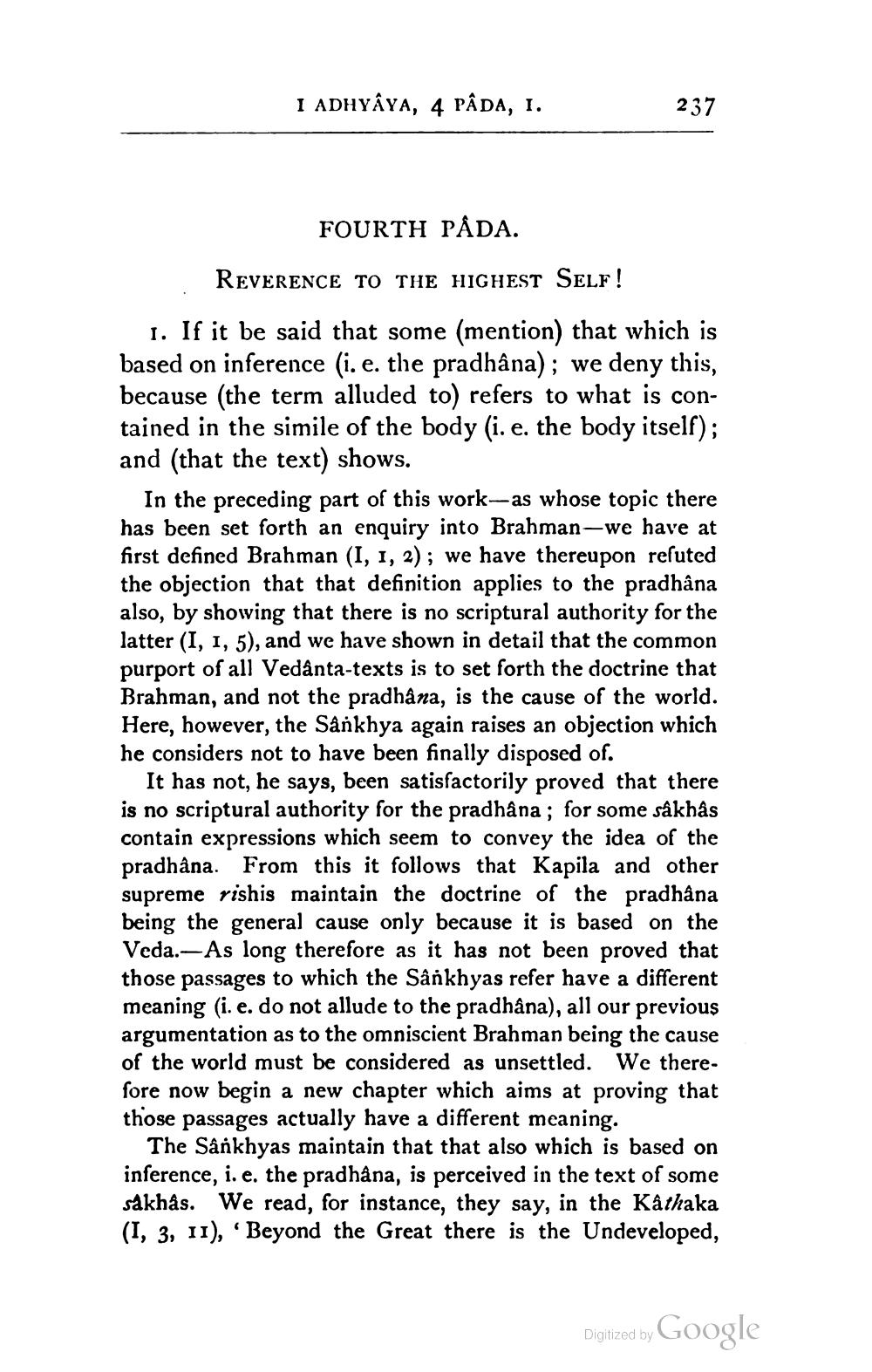________________
I ADHYAYA, 4 PÂDA, 1.
237
FOURTH PÅDA.
REVERENCE TO THE HIGHEST SELF! 1. If it be said that some (mention) that which is based on inference (i. e. the pradhâna); we deny this, because (the term alluded to) refers to what is contained in the simile of the body (i. e. the body itself); and (that the text) shows.
In the preceding part of this work—as whose topic there has been set forth an enquiry into Brahman-we have at first defined Brahman (1, 1, 2); we have thereupon refuted the objection that that definition applies to the pradhana also, by showing that there is no scriptural authority for the latter (I, 1, 5), and we have shown in detail that the common purport of all Vedanta-texts is to set forth the doctrine that Brahman, and not the pradhana, is the cause of the world. Here, however, the Sånkhya again raises an objection which he considers not to have been finally disposed of.
It has not, he says, been satisfactorily proved that there is no scriptural authority for the pradhana ; for some såkhâs contain expressions which seem to convey the idea of the pradhana. From this it follows that Kapila and other supreme rishis maintain the doctrine of the pradhana being the general cause only because it is based on the Veda.-As long therefore as it has not been proved that those passages to which the Sânkhyas refer have a different meaning (i. e. do not allude to the pradhâna), all our previous argumentation as to the omniscient Brahman being the cause of the world must be considered as unsettled. We there. fore now begin a new chapter which aims at proving that those passages actually have a different meaning.
The Sânkhyas maintain that that also which is based on inference, i.e. the pradhâna, is perceived in the text of some sakhås. We read, for instance, they say, in the Kåthaka (I, 3, 11), 'Beyond the Great there is the Undeveloped,
Digitized by Google




